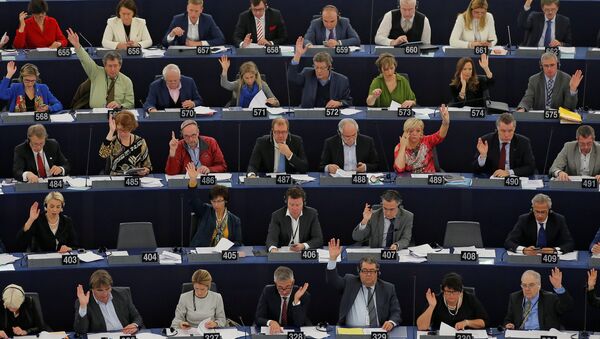Under a long-standing agreement — apparently renewed after the last parliamentary elections, 2014 — the European People's Party (EPP) and the Socialists and Democrats (S&D) would share the presidency of the five-year parliament. That has been the case — bar one parliament — since 1979.
Over the past 5 years, I have endeavoured to ensure that @Europarl_EN occupies the centre-stage in Europe… https://t.co/Wo50NGTscZ
— Martin Schulz (@MartinSchulz) 16 January 2017
Martin Schulz announced, November 2016, he would stand down and it was assumed the EPP would nominate its own candidate. However, the S&D leader Gianni Pittella announced he would stand for election, causing a row between the two main parties. The EPP has nominated Antonio Tajani, a former Commissioner, who — as contender for the largest bloc in the parliament — is the frontrunner.
As @EPPGroup candidate for the Presidency of @Europarl_EN I put at your service over 20 years of political life dedicated entirely to #EU pic.twitter.com/Wzs8NcXWTO
— Antonio Tajani (@Antonio_Tajani) 14 December 2016
The Liberals and Democrats leader, former Belgian Prime Minister Guy Verhofstadt, is also standing, although his chances were dealt a blow over the botched potential tie-up with the Italian Five Star Movement, led by Beppe Grillo.
Other candidates announced are: Helga Stevens, MEP, European Conservatives and Reformists Group; Laurenţiu Rebega, MEP, Europe of Nations and Freedom Group; Eleonora Forenza, European United Left-Nordic Green Left Group; and Jean Lambert, Group of the Greens/European Free Alliance.
Four Rounds?
The election starts, January 17, at 09:00 CET and is done using a secret ballot. MEPs mark their preferred candidate on a ballot paper and place the vote in a ballot box, overseen by eight tellers chosen from among MEPs.

A candidate getting an absolute majority of the votes cast (50% + 1) is elected.
If there is no winner after the first ballot, the same candidates or new candidates can be nominated for a second round of voting under the same conditions. This can be repeated a third time if necessary.
If no one is elected at the third ballot, the two highest scoring candidates go to a fourth ballot, where the winner is decided by simple majority. If there is a tie, the older candidate is declared the winner.
If the EPP's Tajani wins, the EPP would have the presidency of all three institutions, the parliament, the Commission (Jean-Claude Juncker) and the Council (Donald Tusk). That — in turn — could lead to a shake-up at the top level of EU jobs as the EU struggles to deal with the migrant crisis, troubles in the Eurozone, rising populism and Brexit.


